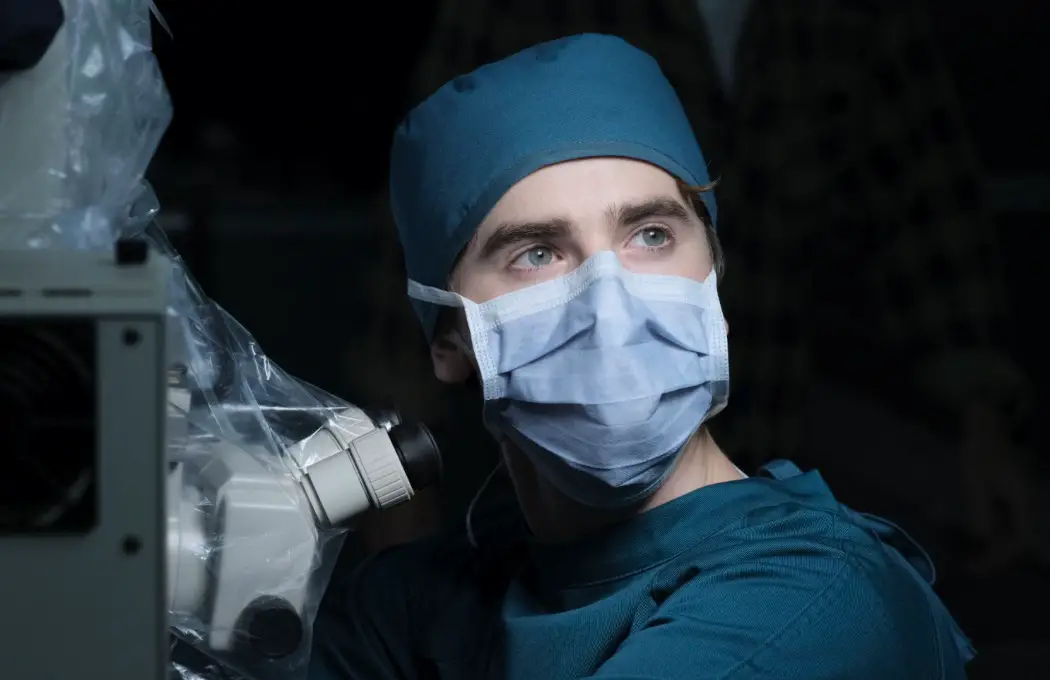When many people think of autism, they tend to think about the most severe cases of the disorder, in which the person is completely dependent, has behavioral impairments and is unable to communicate both verbally and non-verbally. While it is true that many people with autism have language deficits, according to Autism Speaks, you cannot make assumptions about a person after hearing that they have autism. “There is no one type of autism, but many,” the website says.
On ABC’s “The Good Doctor,” Freddie Highmore plays Dr. Shaun Murphy, a surgeon with autism. Murphy’s mentor, Dr. Aaron Glassman, first met Murphy when he was 14 years old. Murphy and his brother, Steve, ran away from home after their father threw his pet rabbit against a wall. The pair brought the rabbit to a doctor, Glassman, to see if he could save its life. From this moment on, Glassman has looked out for Murphy, which is the reason that Murphy finds himself at San Jose St. Bonaventure Hospital for the position of surgical resident.
Glassman fights for what he believes is Murphy’s rightful place at the hospital despite having autism, and ultimately, the hospital board concedes after hearing Murphy give a heartfelt speech about his rabbit and brother “going to heaven in front of his eyes.”
Autism and savant syndrome seldom occur together, but it does happen. By itself, autism spectrum disorder is a condition that includes a range of symptoms, such as impairments in behavior, development, cognition and speech. Savant syndrome is rarer than autism spectrum disorder, and it is a condition in which a person with significant mental disabilities demonstrates particular strengths or abilities that are far above average.
The main area in which savants generally excel is related to memory. About 10 percent of people diagnosed with autism are also diagnosed with savant syndrome, and this is the case with Murphy in “The Good Doctor.” When Murphy diagnoses a patient or is pressed to come up with a different way of performing a difficult surgery, everything is portrayed through Murphy’s eyes. In executing these tasks, Murphy uses his extraordinary memory to concoct a diagram of the patient’s body or body part in his mind, label the relevant parts and immediately come up with a solution to the current problem.
Many people believe those with autism cannot lead independent, normal lives. Murphy proves these people wrong, as an exceptionally gifted surgeon and a kind, loving and humorous human being. Viewers who watch “The Good Doctor” may only remember the fact that Murphy has autism and not savant syndrome. But, by way of his savant syndrome, Murphy showcases his exceptional abilities on “The Good Doctor” despite his autism, and he overcomes any difficulty his autism might bring him to be able to interact socially and emotionally with his colleagues and patients.
Murphy is gradually adjusting to his environment and trying to assimilate by picking up on social cues. In Episode 6, “Point Three Percent,” after arriving late to work several times, Murphy is finally on time. Dr. Melendez, his superior, says, “Right on time. What, did you sleep here or use a teleportation device?” Murphy replies, “I used a teleportation device.”
Murphy later bonds with Evan Gallico, a young boy who resembles his younger brother Steve. After finding out that Gallico has stage four osteosarcoma, a type of bone cancer, Murphy desperately wants to cure him even though the odds are slim. He eventually comes to terms with the fact that he can’t cure Gallico, and it devastates him. In the last few minutes of the episode, Murphy asks Gallico for a favor. Murphy reads him a passage from a worn-torn copy of “To Kill A Mockingbird” that had belonged to Steve, evidenced in a flashback of Murphy sitting alone on the deserted bus hugging the book to his chest shortly after Steve’s tragic death. Although Murphy is unable to use his incredible talents to save Gallico, he demonstrates vulnerability, and that’s a win in and of itself.
Sooner or later, there was going to be an episode involving a patient who also has autism. In this episode, a teenage boy named Liam comes into the emergency room and needs to be soothed in order to cooperate with the doctors. Because he also has autism, Murphy understands Liam, and he knows how to connect with him. Murphy eventually tells Liam, “You’re just like me,” and Liam looks into his eyes like he understood Murphy as well.
As always, Murphy uses his exceptional gift of savant syndrome to figure out that his vitamins are causing his organs to deteriorate, meaning surgery is required. Liam’s mother thanks Murphy, but then says, “in no way will Dr. Murphy be in it.” Although Murphy has proven himself to be qualified and intelligent, Liam’s mother cannot look past the fact that he has autism.
However, Melendez, who originally believed that Murphy could not be a surgeon due to his autism, finally comes around, recognizing his talent. Melendez makes it clear that he would not perform the surgery if Murphy could not be a part of it, and if Gallico’s mother does not accept these conditions, her son was going to be transferred to another hospital. Gallico managed to say, “He said I could do it. I want Dr. Shaun.” Murphy not only accurately identified his patient’s problem, but he also somehow got Liam to clearly communicate about whom he wanted to perform his surgery.
What no viewer ever saw coming was the connection between Murphy and his next-door-neighbor Lea. A stereotype people often hold about those with autism is that they cannot have serious, meaningful relationships, let alone love profoundly. At the close of Episode 9, Lea goes over to Murphy’s apartment to apologize for having ranted earlier that morning and for eating the apple he was going to have for breakfast. To repay Murphy, Lea provides him with another apple. Moments later, he does something completely out of his comfort zone; he knocks on Lea’s door, and when she puts her arms on his back, Murphy welcomes the contact. He slowly but willingly puts his arms on hers for a few brief moments before dropping them.
Before this, Murphy would have kept his arms limp at his sides. He is already a renowned surgeon, but he has to learn how to connect with people and adopt a bedside manner, and he is doing just that. Murphy is clearly developing feelings for Lea. Earlier on in the season, Murphy said he doesn’t need love; he even asked Glassman why he would he need it. And now, in one scene, Lea playfully shoves Murphy on the shoulder and calls him an “asshat.” Immediately, he pats the area several times, looking down at it, perhaps hoping her hand was still there, which shows progress. This just goes to show that people with autism should not be judged solely on their diagnosis. Sometimes, they will defy the odds.
Throughout the show, Murphy continually saves the day. Later on in the show, Gabriel, a 5-year-old with heart arrhythmias, is flown in from the Congo on the hospital’s dime in the hopes of securing increased funding. Thinking there is nothing they could do, Melendez decides to send Gabriel and his mother home. Murphy puts his stubbornness to good use and tells him no. Whether it is because of Murphy’s autism or savant syndrome, his peculiar characteristics not only saved Gabriel’s life, but many others as well. Murphy is not only saving lives on “The Good Doctor,” but touching the lives of viewers.
















